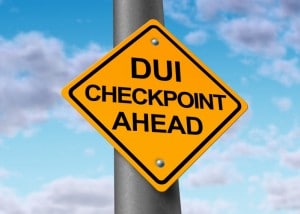
Are sobriety checkpoints legal?
California law authorizes DUI checkpoints to keep drunk drivers off the road and prevent accidents and deaths. Usually police can’t just stop you for no good reason. But since lives are at stake when people drink and drive, courts have decided that checkpoints can be constitutional—when certain criteria are followed. For example, the checkpoint should be publicly advertised in advance, and it must be highly visible and clearly marked. The stop should take a reasonable amount of time, and it must be as minimally intrusive as possible.
Can the cops pull me over just because I avoid the checkpoint?
If you drive up to a checkpoint and are asked to stop, you need to stop. However, it’s not against the law to intentionally drive another route to avoid a sobriety checkpoint, if you are driving safely and following the rules of the road. Of course, if you are driving erratically or putting lives in danger, the police will be able to pull you over anyway.
What should I expect at a checkpoint?
When you are stopped at a checkpoint, the officer will ask for your license and registration and will talk with you briefly to assess whether you seem sober or not. If the officer doesn’t notice anything suspicious, you will be allowed to drive on.
Do I have to agree to DUI field testing?
If the officer suspects that you have been drinking, you may be asked to do DUI field tests, just like at a regular DUI stop. But remember, in most cases, you can refuse to consent to field sobriety tests before you are arrested—as long as you are over 21 and not on DUI probation. However, there are consequences to refusing field tests, and you should talk to an experienced DUI defense attorney, because the law is complicated and changing.
If you refuse to perform DUI field tests (such as reciting the alphabet backwards, walking a line, following a pen with your eyes, etc.), you might still be arrested, but at least you aren’t helping them build their case against you. If you refuse to take Breathlyzer test at the checkpoint, you will be arrested and taken to the police station, where you will have to take a blood or breath test. However, this can still be advantageous to you, because your blood alcohol level may drop in the time it takes to process you and deliver you to the station. If you are under 21 or on probation for DUI, you are legally required to take the breath test when you are stopped.
Don’t give consent to search your car
When you are stopped at a checkpoint, an officer may look into your vehicle from the outside, but must have probable cause to search inside your car—unless you give your consent. Most people don’t know that they can refuse to consent. The officer may search your car anyway, but they must have a good reason to suspect illegal activity. For example:
- Open alcohol containers or drug paraphernalia in plain sight
- An obvious smell of drugs or alcohol
- An admission you have been drinking.
Defenses
Sobriety checkpoints are legal under California law, but there may be a question of whether the stop, and your arrest, were lawful or not. If officers didn’t follow the correct procedures in your situation, the prosecution might not have a case against you.
If you are arrested at a DUI sobriety checkpoint in Southern California, call an expert DUI attorney as soon as possible. Dan E. Chambers has over twenty years of experience as a prosecutor and a defense attorney, and he has handled thousands of DUI cases. Schedule your free initial consultation now by calling 714-760-4088 or emailing dchambers@clfca.com today.




